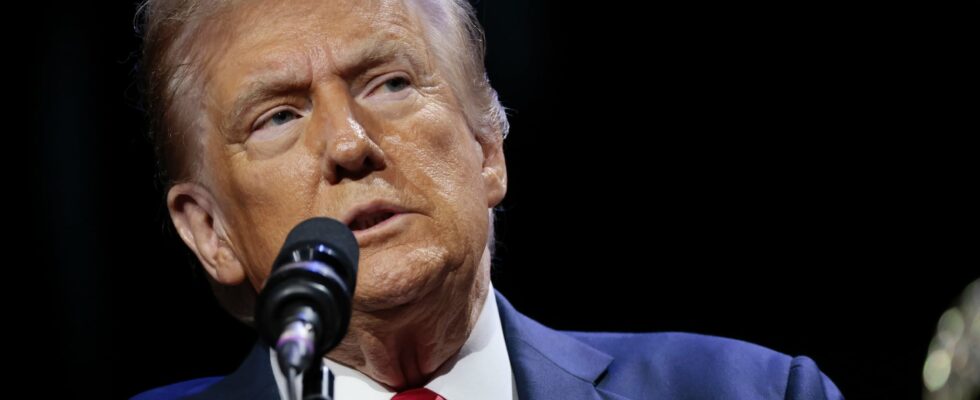Bitcoin has crossed the legendary $100,000 mark, even reaching $104,000, up 36% since the announcement of the results of the American presidential election. It takes with it the entire cryptocurrency market, which now weighs 3.7 trillion dollars, well above its peak in November 2021 at 3.1 trillion. The reason for this excitement? Trump’s victory which made the promotion of cryptocurrencies an important axis of his campaign.
A total turnaround for someone who, in 2021, considered bitcoin a “scam” and hated the idea of “another currency competing with the dollar”. In 2019, he had tweeted virulently against cryptocurrencies, even opposing his administration. He was then in step with the sector’s most vocal opponents, Democrats Elizabeth Warren and Brad Shermanwho wanted to ban them.
When FTX founder Sam Bankman-Fried became a top donor to Democrats, some believed the party was aligning with this ecosystem. But, after the fall of FTX, Gary Gensler, the chairman of the Securities and Exchange Commission appointed by Biden, heavily regulated the cryptocurrency industry. Elizabeth Warren, a figure on the left fringe of the Democratic Party, promised to “raise an anticrypto army“. The Trump campaign saw the opportunity to oppose this toughening by mobilizing one of the pillars of its electorate, young men: 42% of those aged 18 to 29 say they have already invested, traded or used cryptocurrencies, compared to 17% of women in the same age group and 17%, more broadly, of adults in the country.
The US Treasury’s mountain of bitcoins
In 2022, the Trump campaign is marketing NFT trading cards. In 2023, we discover that the president has a large Ethereum wallet. This year, the Republican’s campaign team announced that it was accepting donations in cryptocurrencies, mobilizing donors with deep pockets. In June, a meeting was organized with the largest bitcoin miners in the United States where Trump assured them of his support for access to cheap energy. The following month, the presidential candidate was the guest of honor at the Bitcoin Conference in Nashville. He promises the head of Gensler, whom he effectively replaced on December 4 by a zealot of this industry, Paul Atkins. Republicans in the House of Representatives have also proposed a pro-cryptocurrency bill, entitled Financial Innovation and Technology for the 21st Century Act.
The influence of Elon Musk and that of Peter Thiel, great defenders of cryptos in the name of libertarianism, played an important role. The positions of investor Marc Andreessen also resonated. The latter accused the Consumer Financial Protection Bureau created by Elizabeth Warren of having arbitrarily deprived certain companies of banking services. Finally, note that the main predictive market platform, Polymarket, which for a long time gave Trump the victory, is based on blockchain.
Beyond the opportunity this industry offers to glean votes and funds, Donald Trump now seems to consider bitcoin as a strategic, complementary asset, and no longer a rival to the dollar. We must see in this a fear about the ability of the dollar to maintain its exorbitant privilege as the main currency of exchange and reserve which allows America to finance its deficits. Debates on the dedollarization of the world are going well in think tanks close to the Republicans. Saudi Arabia test the petroyuans with China. Last week, Donald Trump threat on its Truth Social network, emerging countries are tempted to do without 100% customs duties on the dollar.
Its ambition is therefore to constitute a strategic fund, like Salvadoran President Nayib Bukele. Trump promised to stop sales of cryptocurrencies seized by the Administration. The subject is hot, the US Treasury holds more than 69,000 bitcoins seized as part of the closure of the drug and arms sales platform Silk Road. A portfolio that he is on the verge of selling, which could cause a sharp drop in price.
Robin Rivaton is Managing Director of Stonal and member of the Scientific Council of the Foundation for Political Innovation (Fondapol)
.
